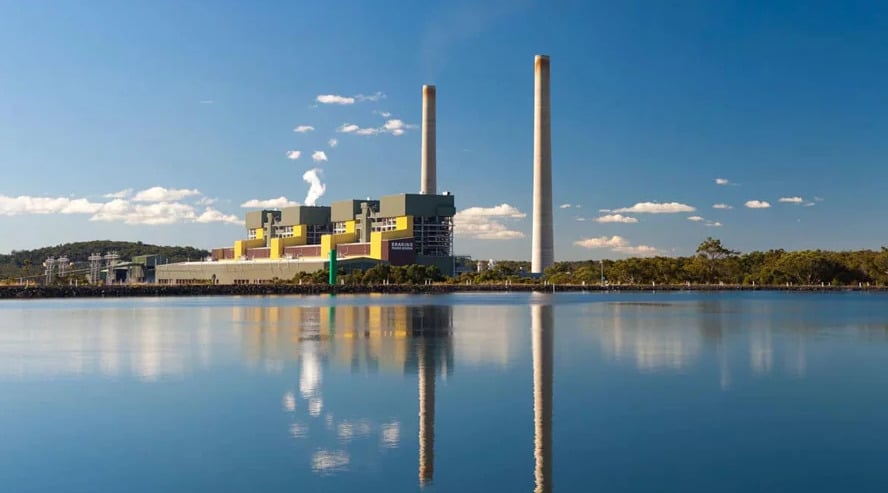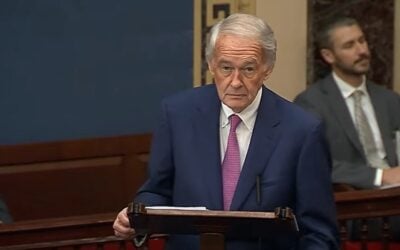
Australian utility Origin Energy has officially approved an expansion to its Eraring battery energy storage system (BESS) which means its facility in New South Wales will be the country’s largest of its type when completed.
The expansion will increase the project’s first stage, which is being delivered by Finnish marine and energy technology group Wärtsilä, from a 2-hour duration system to 4-hour. This means the 460MW BESS will be increased from 1,070MWh to 1,770MWh.
Enjoy 12 months of exclusive analysis
- Regular insight and analysis of the industry’s biggest developments
- In-depth interviews with the industry’s leading figures
- Annual digital subscription to the PV Tech Power journal
- Discounts on Solar Media’s portfolio of events, in-person and virtual
With this addition, the Eraring BESS site will reach around 2,800MWh energy storage capacity, the same size as the existing black coal-fired power plant connected to the National Electricity Market (NEM) when completed in 2027, to a power output of 700MW.
The Eraring BESS project is part of Origin’s plans to withdraw Australia’s largest coal-fired power station from service and instead contribute to the uptake of variable renewable energy generation technologies, such as wind and solar. It is located in the Eraring suburb of the City of Lake Macquarie, approximately 130km north of the state capital, Sydney.
The coal power plant was scheduled to close in August 2027, but the original date of 2025 was pushed back due to a request by the New South Wales government to “guarantee a maximum of electricity supply.”
Origin’s head of energy supply and operations, Greg Jarvis, highlighted that the expansion of the Eraring BESS makes it Australia’s largest approved BESS.
“Construction of the third stage of the Eraring battery further increases our energy storage footprint and represents another significant step in our ambition to lead the energy transition through cleaner energy and customer solutions,” Jarvis said.
“Upon completion, Australia’s largest power station will be host to the nation’s largest approved battery storage system, cementing Eraring as a critical piece infrastructure at the heart of Australia’s energy system for decades to come.”
Indeed, the expansion of the Eraring BESS sees it overtake Neoen’s 219MW/877MWh Collie BESS in Western Australia. Construction on that project started in March 2024.
Origin Energy has been successful with its Eraring project throughout 2024. In July, the organisation approved the site’s second stage, adding an additional 240MW/1030MWh grid-forming BESS. Wärtsilä has been contracted to deliver the system for the project’s second stage.
The project’s first phase is expected to be operational sometime next year, with construction on the second phase starting late last month.
Wärtsilä revealed that the BESS will operate in virtual synchronous machine (VISMA) mode. This will enable short-circuit current capabilities, such as reactive current, droop control, and synthetic inertia, to support grid stability and security. This will be achieved via Wärtsilä’s energy management system, GEMS Digital Energy Platform, combined with grid-forming advanced inverter technology.
Origin’s shift into renewable energy and storage
The Eraring BESS is not the only utility-scale storage project Origin Energy is developing. The organisation is also behind the 300MW/650MW Mortlake BESS in Victoria, which started construction in late August.
Origin Energy confirmed its intention to proceed with the Mortlake project in early 2024 when it committed to investing AU$400 million (US$263.7 million) into it and announced the appointment of Fluence as BESS technology supplier. Fluence’s Nispera asset management software will optimise its market participation.
Last month, Origin Energy also announced a strategic shift away from the hydrogen market, citing “uncertainty around the pace and timing of development of the hydrogen market”. This saw the company withdraw from the development of the Hunter Valley Hydrogen Hub.
Origin Energy’s CEO Frank Calabria revealed at the time that the company was reoriented to focus on renewable energy generation and energy storage developments.
“Ultimately, we believe investments focussed on renewable energy and storage can best support the decarbonisation of energy supply and underpin energy security over the near-term,” Calabria said.
This came just a couple of months after the company cancelled 204MW of solar PV power plants in Victoria and South Australia due to “unfavourable conditions”, as reported by our sister site PV Tech.






